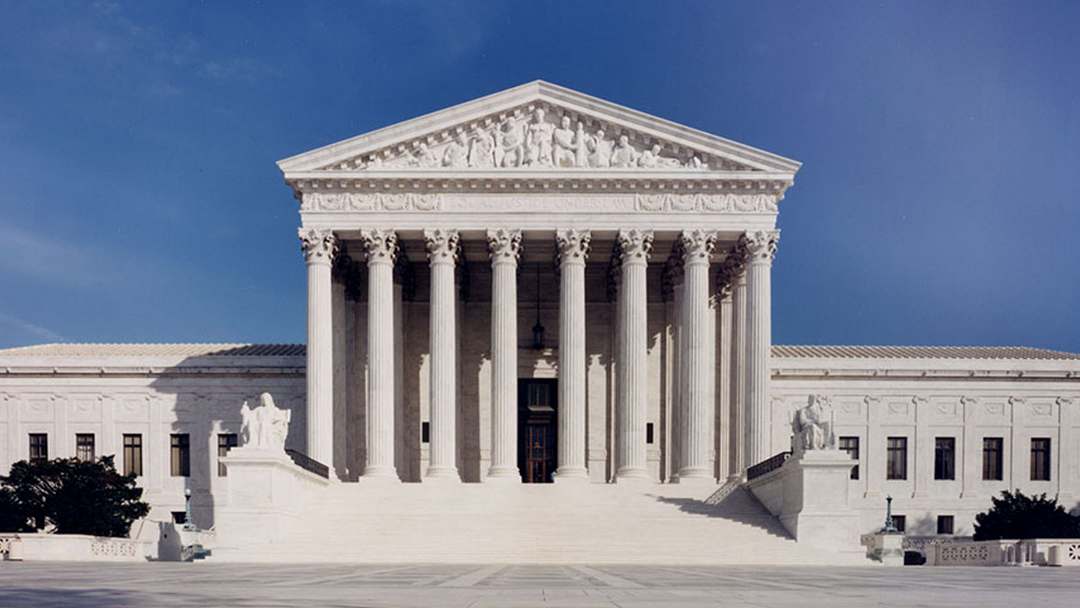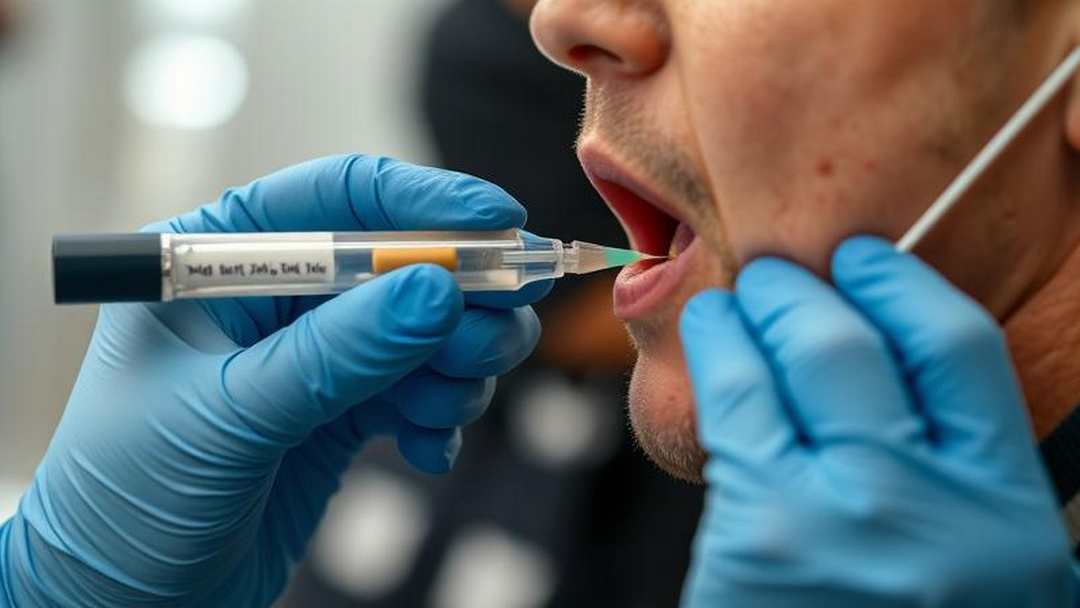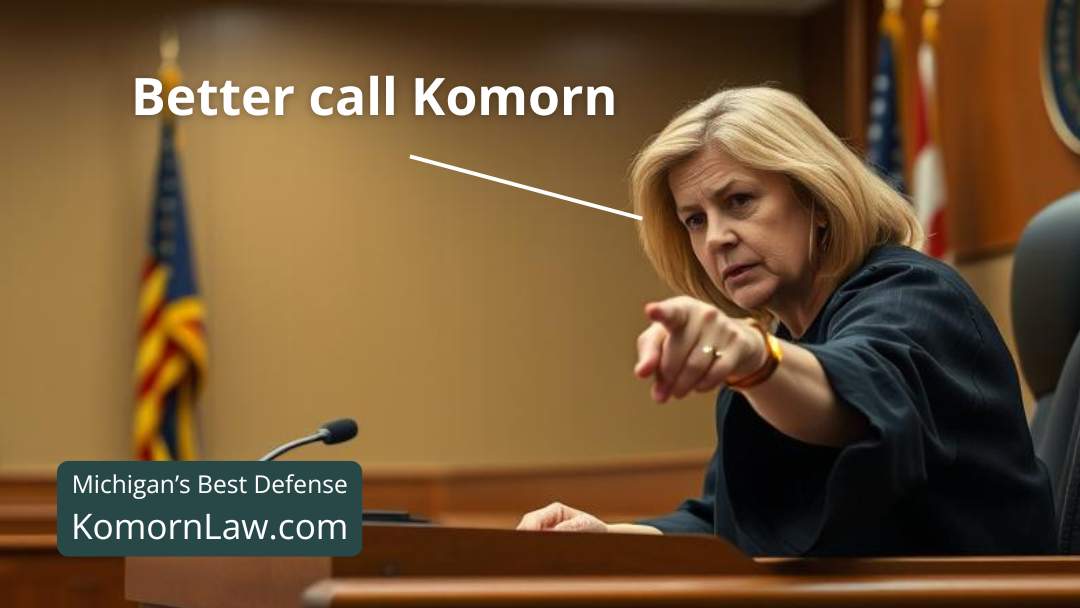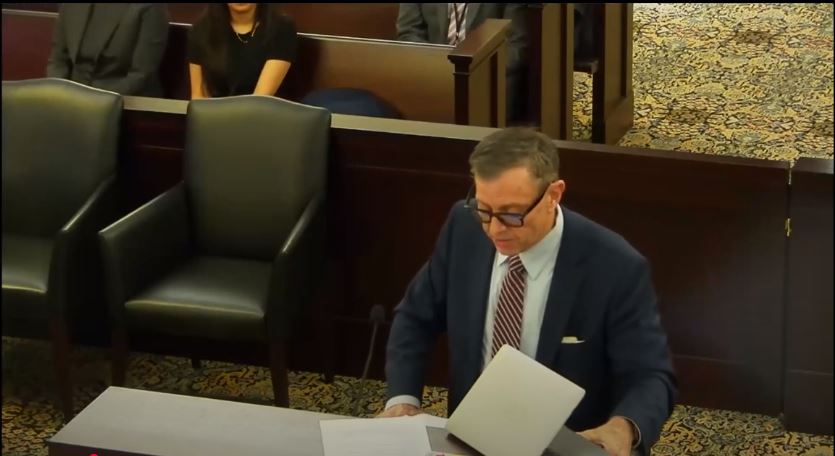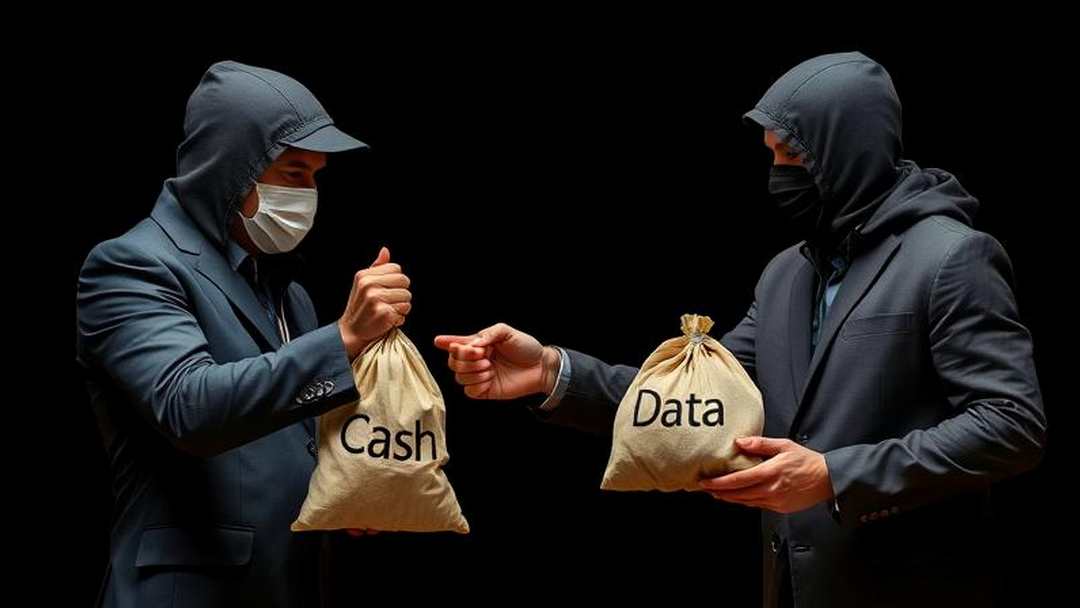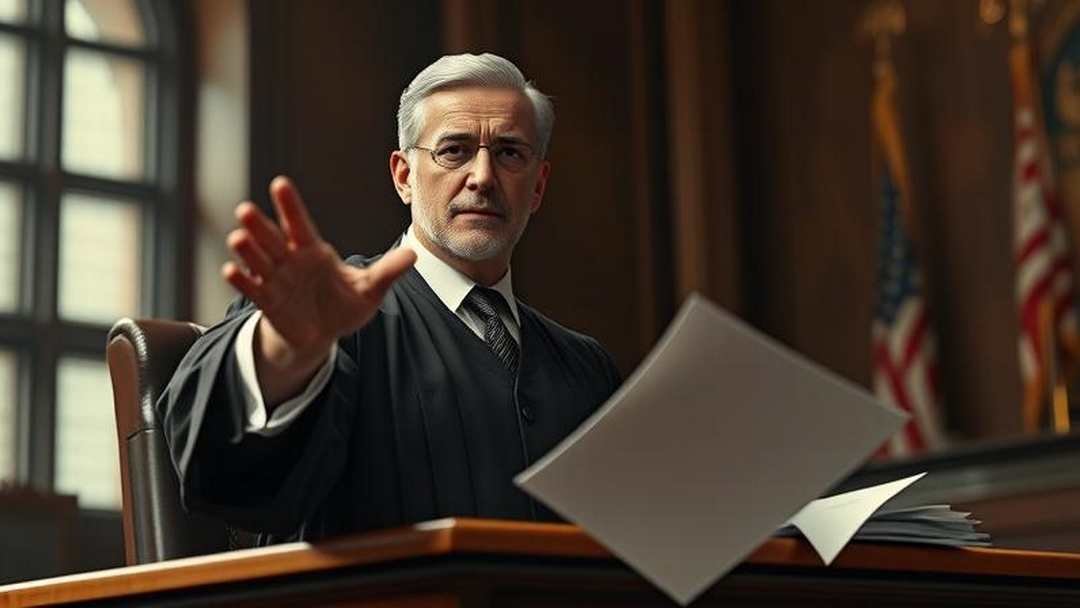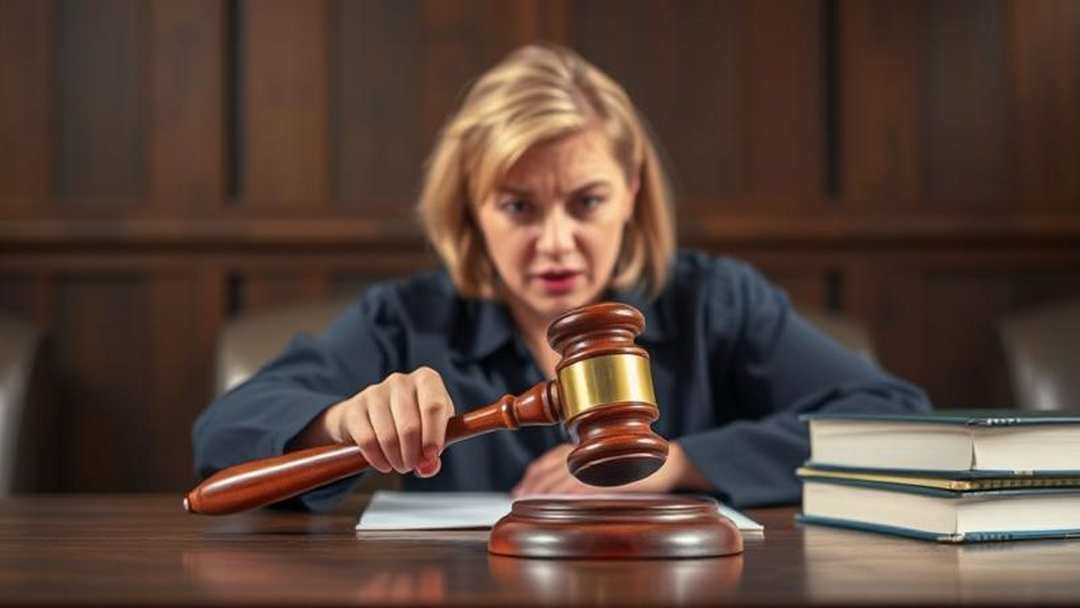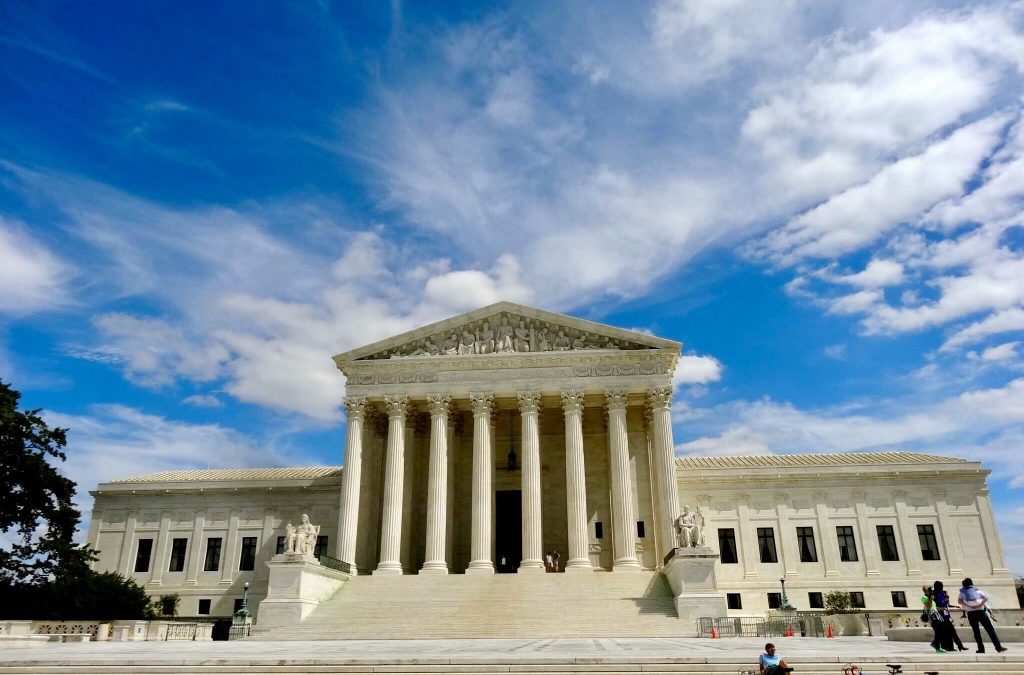
May 2, 2024 | Blog, Supreme Court, Supreme Court Ruling
The Constitution provides “no textual justification for saying that the existence or the scope of a State’s power to expropriate private property without just compensation varies according to the branch of government effecting the expropriation.”
The case in question is Sheetz v. County of El Dorado, California.
Background:
Background of the Case: George Sheetz, the petitioner, was required by the County of El Dorado to pay a $23,420 traffic impact fee as a condition of receiving a residential building permit. The fee was part of a “General Plan” enacted by the County’s Board of Supervisors to address increasing demand for public services spurred by new development.
Reason for the Case:
Sheetz claimed that conditioning the building permit on the payment of a traffic impact fee constituted an unlawful “exaction” of money in violation of the Takings Clause. He argued that the Court’s decisions in Nollan v. California Coastal Comm’n, and Dolan v. City of Tigard, required the County to make an individualized determination that the fee imposed on him was necessary to offset traffic congestion attributable to his project.
Content of the Case:
The courts below ruled against Sheetz based on their view that Nollan and Dolan apply only to permit conditions imposed on an ad hoc basis by administrators, not to a fee like this one imposed on a class of property owners by Board-enacted legislation.
Final Opinion of the Case:
The Supreme Court held that the Takings Clause does not distinguish between legislative and administrative land-use permit conditions. Therefore, the ruling was in favor of Sheetz, overturning the decision of the lower courts.
Read the full SCOTUS Opinion here
Need to Fight the System?
See what we can do for you
Call to Fight for your Rights (248) 357-2550

Jan 15, 2024 | Blog, Supreme Court, USA news
The Petitions of the Week column highlights a selection of cert petitions recently filed in the Supreme Court. A list of all petitions we’re watching is available here.
Organized crime, from the mafia to small-time money laundering schemes, often evades criminal prosecution. To bolster efforts to fight organized crime, Congress passed the Racketeer Influenced and Corrupt Organizations Act, known as RICO, more than 50 years ago.
In addition to the criminal penalties for violating RICO, the law also authorizes private individuals to bring civil lawsuits for an injury to their “business or property” as a result of the defendant’s “racketeering activity,” which the law defines broadly to include a wide range of criminal offenses.
This week, we highlight petitions that ask the court to consider, among other things, whether someone can sue under RICO to recover lost earnings.
Marketed as “a revolution in medicinal hemp-powered wellness,” Dixie X is a CBD supplement that claims to offer a variety of health benefits. After learning about Dixie X in a magazine, Douglas Horn began using the supplement in 2012 to soothe pain and inflammation from a car accident. Although the ad claimed that the supplement does not contain any THC (the active ingredient in marijuana),
RESTORE YOUR SECOND AMENDMENT RIGHTS
RESTORE YOUR PROFESSIONAL LICENSE
RESTORE YOUR DRIVER LICENSE
RESTORE YOUR PAST (Expungements)
Call our Office for a free case evaluation
Komorn Law (248) 357-2550
(tap here to call now)
Professional License Restoration / Rights Restoration / Record Expungments / Driver License Restoration
Satisfied, Horn began using Dixie X. Shortly after, he failed a random drug test at work and was fired. Suspecting the supplement, Horn sent a batch to an independent lab, which found that the product contained THC.
Horn went to federal court in New York, arguing that the company that sold Dixie X, Medical Marijuana, Inc. – which, despite its name, deals only in hemp-based CBD products – was responsible for his termination. Part of his lawsuit alleged violations of state law, including a claim that he was fraudulently induced to purchase the supplement while unaware of its risks. But Horn also argued that the company injured his “business or property” under RICO by conspiring to commit federal mail and wire fraud that resulted in the loss of his salary.
In Medical Marijuana, Inc. v. Horn, the maker of Dixie X asks the justices to grant review and reverse the 2nd Circuit’s ruling. The company argues that economic harm stemming from a personal injury has no business, so to speak, under RICO. “If quintessential personal injuries count as injuries to ‘business or property’ just because economic damage inevitably results,” the company writes, “Congress’ careful limitation on civil RICO claims would be toothless.”
Read the Rest here at ScotusBlog
Komorn Law – Federal Courts and All Michigan Courts
A list of this week’s featured petitions is below:
Yim v. City of Seattle, Washington
23-329
Issue: Whether Seattle’s restriction on private owners’ right to exclude potentially dangerous tenants from their property violates the 14th Amendment’s due process clause.
Amer v. New Jersey
23-351
Issues: (1) Whether a defendant is always “unable to stand trial” under Article VI(a) of the Interstate Agreement on Detainers while a pretrial motion is pending; and (2) whether a defendant has been “brought to trial” within 180 days of his request for final disposition of charges under Article III(a) of the agreement at the point when jury selection begins.
Medical Marijuana, Inc. v. Horn
23-365
Issue: Whether economic harms resulting from personal injuries are injuries to “business or property by reason of” the defendant’s acts for purposes of a civil treble-damages action under the Racketeer Influenced and Corrupt Organizations Act.
Bhattacharya v. State Bank of India
23-390
Issue: Whether, to establish a “direct effect in the United States” under 28 U.S.C. § 1605(a)(2), a plaintiff must make an extratextual showing that either the sovereign engaged in a U.S.-based “legally significant act,” or that the U.S. effects were “legally significant” in addition to being direct.

Apr 11, 2022 | Blog, News
The U.S. Supreme Court has been asked to address whether federal drug law that criminalizes possession of marijuana invalidates state orders requiring employers and their workers’ compensation insurers to pay for medical marijuana prescriptions for employees injured on the job.
However, before it fully takes on the question, the high court has asked the Solicitor General, who represents the federal government before the high court, for guidance in light of the Supremacy Clause of the U.S. Constitution that gives federal statutes primacy over state laws.
Five state supreme courts have addressed whether the reimbursement of medical marijuana costs is permissible, with two ruling yes and three ruling no. The Supreme Court is being asked to resolve this split in authority. Under the federal Controlled Substances Act (CSA), the manufacture, distribution, or possession of marijuana is a criminal offense, with the exception of when the drug is part of a Food and Drug Administration research study.
The Supreme Court’s involvement is related to two cases from Minnesota — Bierbach v Diggers Polaris and State Auto/ United Fire & Casualty and Musta v. Mendota Heights Dental Center and — in which injured employees challenged their employers and their insurers for refusing to reimburse them for their medical marijuana prescriptions.
Musta suffered a neck injury in her work at a medical facility while Bierbach was injured in an accident while working for an all-terrain vehicle dealer.
Read More here –> READ IT
Komorn Law Social Media
Recent Posts
Tag Cloud
2021
BMMR
cannabis
CBD
corruption. prosecutors
dispensary
Driving
DUI
forfeiture
gun rights
hemp
komornlaw
lara
law enforcement abuse
laws
Legalization
marijuana
Medical Marijuana
Michigan
michigan laws
michigan news
MMFLA
MRA
news
police
politics
science
usa news
us supreme court
Your Rights
DISCLAIMER
This post may contain re-posted content, opinions, comments, ads, third party posts, outdated information, posts from disgruntled persons, posts from those with agendas and general internet BS. Therefore…Before you believe anything on the internet regarding anything – do your research on Official Government and State Sites, Call the Michigan State Police, Check the State Attorney General Website and Consult an Attorney – Use Your Brain.

Feb 18, 2021 | Blog, Federal Laws, Legalization
The Biden DOJ took the side of the IRS in the marijuana 280E tax arguement that state-legal cannabis businesses CAN be investigated by the IRS for probable violations of Section 280E of the tax code.
It is believed to be one of the first times the U.S. Department of Justice under the new administration has filed an opinion in a marijuana court case.
The Feb 2021 release of the filing was made by DOJ attorneys, led by acting Solicitor General Elizabeth Prelogar.
“That is precisely the federal government’s position and has been for many years,” Thorburn said – an attorney representing a medical marijuana dispensary. “We were hoping that the Biden administration would soften that stance. “It, unfortunately, has not and is doubling down.”
Section 280E of the IRS tax code prohibits marijuana businesses from taking traditional business deductions because the plant is listed as a Schedule 1 drug under the federal Controlled Substances Act.
Industry leaders are optimistic that federal marijuana law reform could come in the next two years because of the Democratic – control of the U.S. House, U.S. Senate and presidency.
QUESTION PRESENTED
For income tax purposes, the Internal Revenue Code disallows any deduction or credit for business expenses incurred in carrying on a trade or business that “consists of trafficking in controlled substances” in violation of federal or state law. 26 U.S.C. 280E. Marijuana is a controlled substance, and federal law prohibits trafficking it. 21 U.S.C. 812(c), 841(a)(1). Petitioners own and operate a marijuana dispensary in Colorado, which has decriminalized marijuana in some respects under state law. The question presented is as follows:
Whether the court of appeals correctly affirmed the district court’s decision to enforce several third-party summonses issued by the Internal Revenue Service to a Colorado state agency as part of an investigation into the accuracy of petitioners’ federal income tax returns, including whether petitioners claimed any business expense deductions disallowed by Section 280E.
Read the response here
Komorn Law Social Media
Recent Posts
Tag Cloud
2021
BMMR
cannabis
CBD
corruption. prosecutors
dispensary
Driving
DUI
forfeiture
gun rights
hemp
komornlaw
lara
law enforcement abuse
laws
Legalization
marijuana
Medical Marijuana
Michigan
michigan laws
michigan news
MMFLA
MRA
news
police
politics
science
usa news
us supreme court
Your Rights
DISCLAIMER
This post may contain re-posted content, opinions, comments, ads, third party posts, outdated information, posts from disgruntled persons, posts from those with agendas and general internet BS. Therefore…Before you believe anything on the internet regarding anything – do your research on Official Government and State Sites, Call the Michigan State Police, Check the State Attorney General Website and Consult an Attorney – Use Your Brain.

May 3, 2020 | News, Supreme Court Ruling
Listen live to arguments in the Supreme Court.
On Monday, the Supreme Court is set to hear arguments over the phone for the first time ever due to the coronavirus pandemic; they’ll hear 10 cases remotely from now until May 13. But that’s not the only history being made on Monday, as the Supreme Court will also for the first time ever make the audio available to be listened to live, The Associated Press reports.
Listen Here at link below on NPR
https://www.npr.org/2020/05/03/848317039/listen-live-supreme-court-arguments-begin-monday
Need an attorney to defend your rights in a criminal case?
Call someone who cares. Attorney Michael Komorn (248) 357-2550


